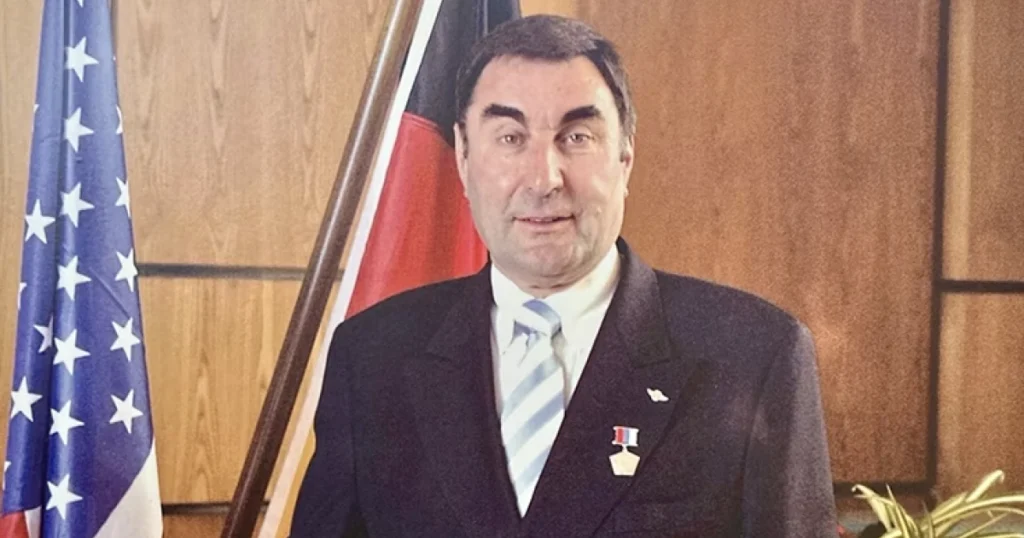Reflecting this week on the scrum to be the new Boeing CEO—or those distancing themselves from the fray—I’m reminded of one leader whose passing happened earlier this year, Horst Bergmann.
Bergmann was chairman and CEO of Jeppesen when I first joined the company from 1997 to 2000. A German Air Force navigator, he joined Jepp’s German division in 1963 after graduating from business school, rising to lead Jeppesen GmbH from 1977 to 1987, after which he was named president and CEO of the entire enterprise.

Horst led with grace and the ability to listen, a trait noted by Mark Van Tine, a mentor and friend who was CEO of Jepp when I returned (a “boomerang” period from January 2012 to April 2014, when I led Aviation Training Solutions).
“Amazingly, I remember the exact moment I met Horst,” said Mark in an email to me. “On October 26, 1989, Jeppesen had just closed on the purchase of Lockheed DataPlan, Inc., and I was called up to the conference room in DataPlan’s Building 90 to have an ‘interview’ with Jim Terpstra [who retired in 2004 as SVP of Aviation Affairs] and Horst. The three of us talked for about 15 minutes (actually, as you might expect, Jim did most of the talking, and Horst and I just listened!).
“I still can vividly remember looking across the table at the German with big, bushy eyebrows and wondering about what was to come. That was the beginning of a relationship that truly had a profound impact on my life.”
Horst led Jepp through the first part of its transformation from a monopoly, a sole source of paper-based navigation into the digital world of integrated aviation services. During my first period there (1997-2000), Jepp had introduced Q service, and then JeppView charts on CD-ROM. Electronic flight bags had just stepped into the mainstream, and the FAA still wasn’t quite sure what to make of them. Oh, how far we’ve come!
Mike Pound, who served in Jeppesen’s corporate communications, also remembered learning more of Horst’s personal story. “After he retired, I knew him because we both were foundation board members, [and] we developed a warm relationship.
“I sat through several media interviews with him,” Pound continued, “and, as I learned his story, I was amazed. He grew up in post-WWII West Germany in a village that was decimated by the war. He then wound up at this company that had a contract with the Army Air Corps—Jeppesen GmbH—and when that contract expired, he went out and solicited commercial customers. Had he not succeeded, I don’t think Jeppesen would have become what it was. Awesome man.”
Early on in my first round at Jepp, I was invited to one of Horst’s “breakfast roundtables,” and I can still picture it. In fact, I learned an important lesson—he asked me, as a new employee, what surprised me after coming to work at Jepp. I said that as a pilot, I was surprised how few other pilots seemed to work there… you can image how that went over! Rightly so, he pointed out the many, many things that are important to a company like Jepp that tap into a huge range of other talents. My 28-year-old self was mortified—but I learned from it. Yes, there are roles where that background is required, but so many where other skills come first.
Horst retired in 2003—handing the reins over to Mark—just three years after Boeing purchased Jepp from Tribune, which had “flipped” the company after its purchase from Times Mirror.
As Boeing casts about for new leadership, I can’t help but be reminded of those effective leaders that challenged me while at the same time nurturing my growth. To a person, they had in common the ability to listen, to take in opposing viewpoints, and steer the outcome in a way that brought the team along with them. They have been deeply invested in that outcome, and not for personal gain but as part of a long-term strategy.
GE Aerospace’s Larry Culp has risen to the top as a natural candidate for Boeing’s chief, but I respect his stated desire to see through what he’s started as the OEM’s top supplier. As reported in Aviation Week, when asked if he would take the mantel as a service to the U.S.: “You know how important what we do underwing is to Boeing. So, GE Aerospace is important [to national security] too.” Bravo to you, Larry, for your desire to see through what you’ve invested in.
While an engineering background may not be an absolute requirement to lead Boeing (see the lesson above about pilots), an outsider selected for financial acumen only just feels like piling another bad decision on top of the whole mess.
